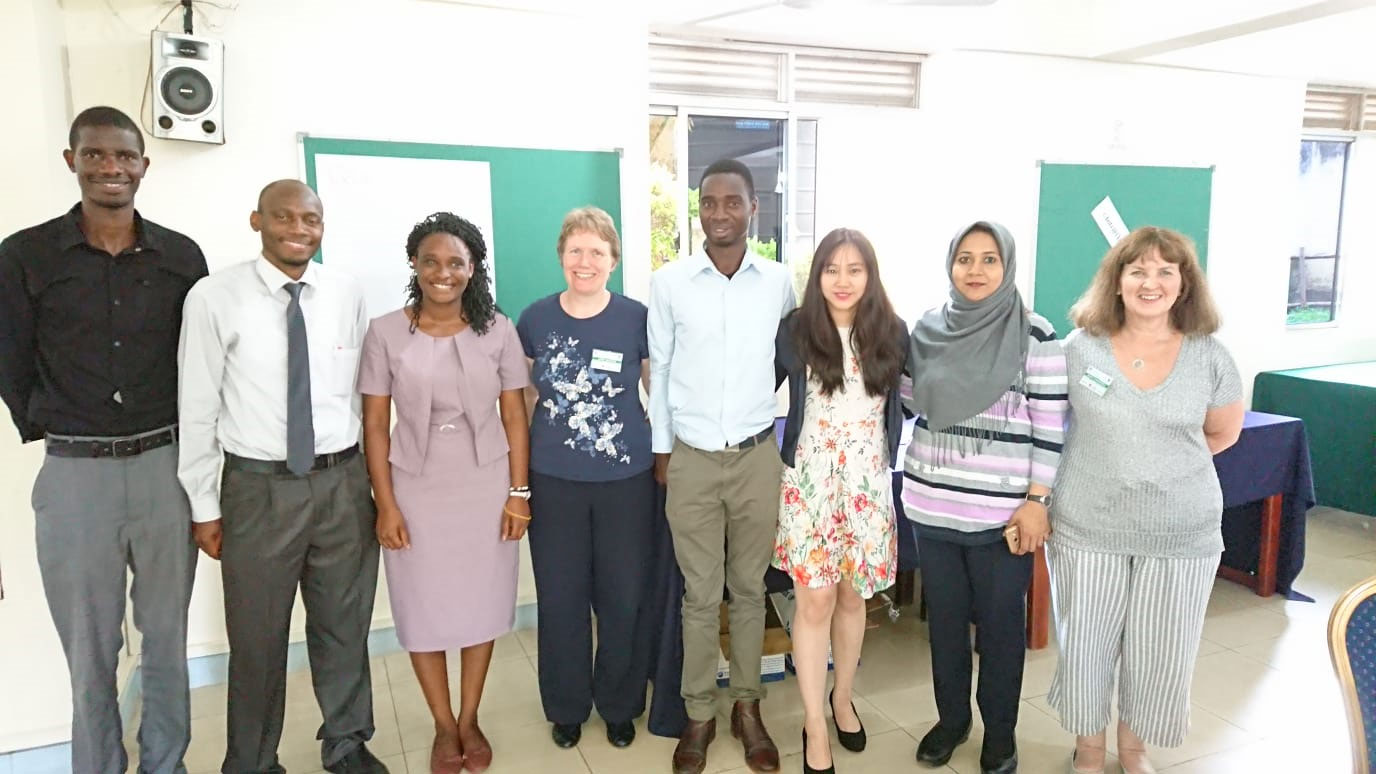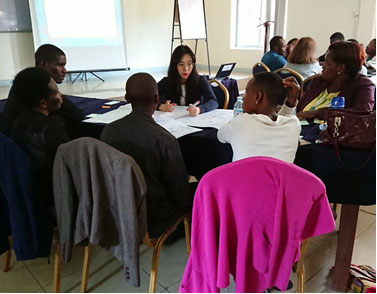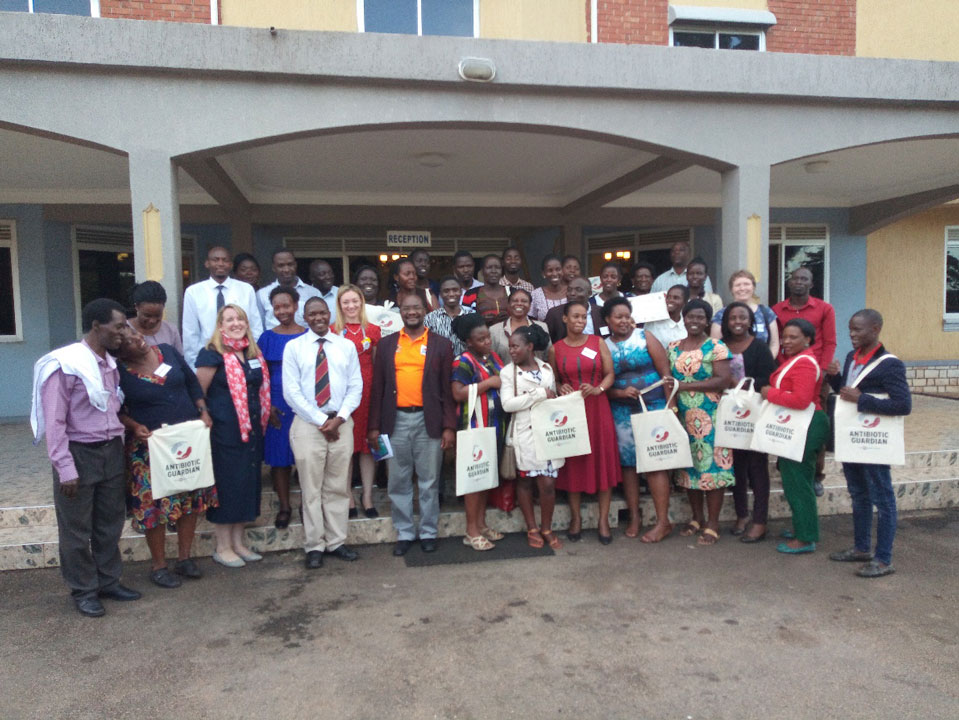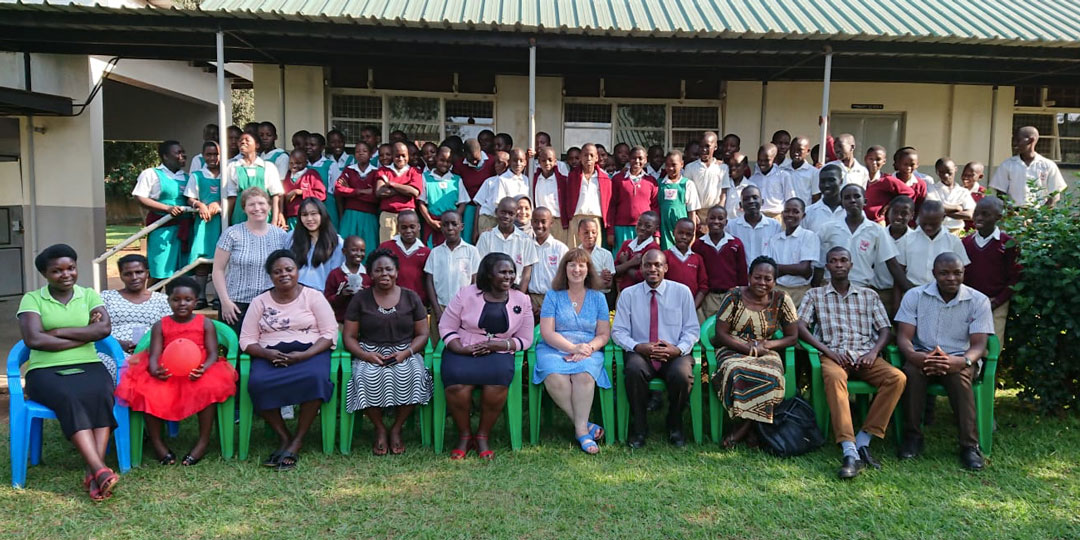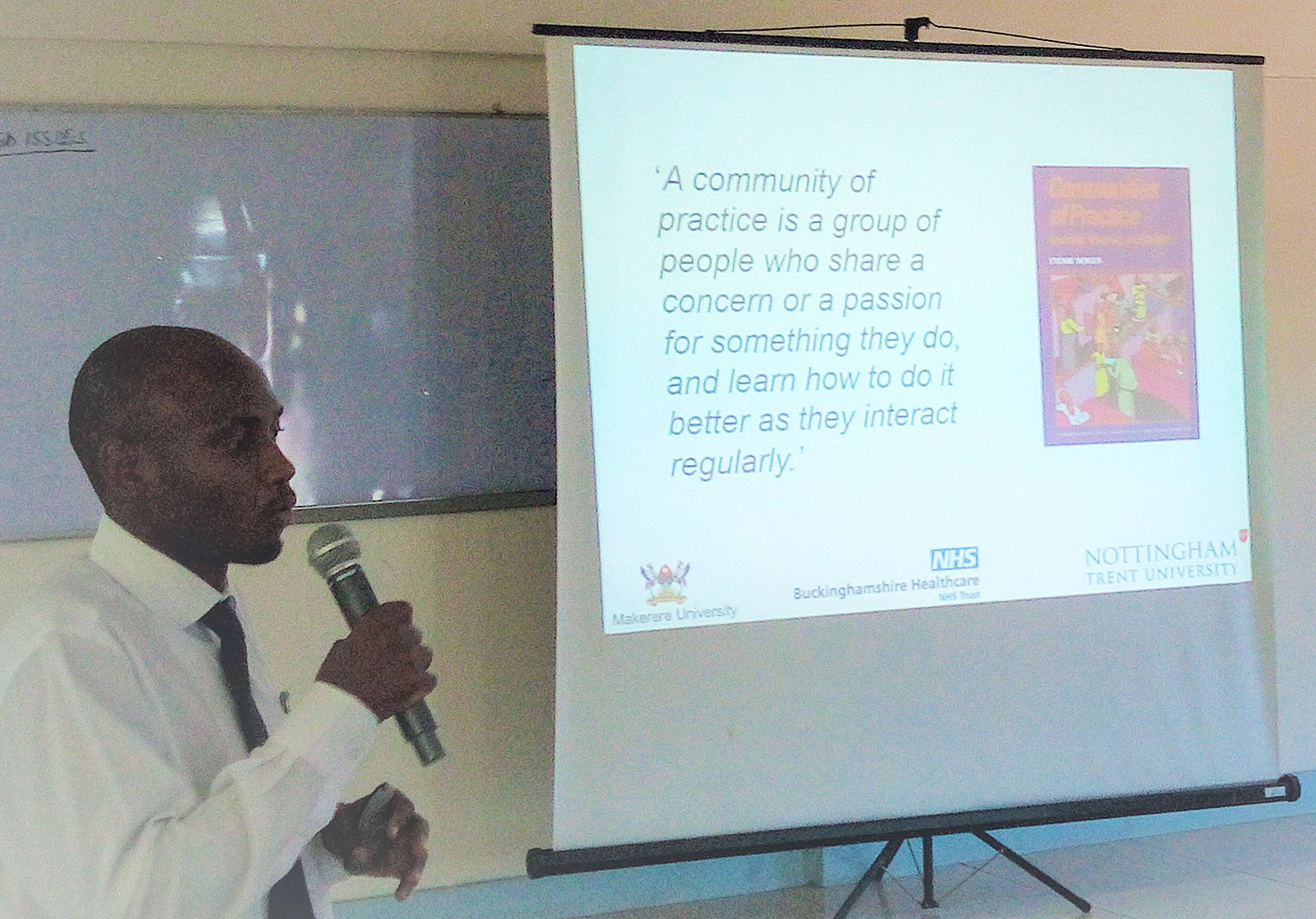
By Grace Biyinzika Lubega and Filimin Niyongabo
Makerere University School of Public Health (MakSPH) in partnership with Nottingham Trent University (NTU), UK held three 2-day training workshops for health practitioners on Antimicrobial Resistance (AMR) and Antimicrobial Stewardship (AMS) at Central Inn, Entebbe in September 2019. The workshops aimed to raise awareness on AMR, a serious and growing global health problem, and hence trained participants on the careful use of antibiotics to limit the spread of drug resistant infections.
The multidisciplinary training was conducted in collaboration with Buckinghamshire Healthcare NHS Trust (BHT) UK, Makerere University Pharmacy Department, Makerere University College of Veterinary Medicine, Animal Resources and Biosecurity (COVAB), Entebbe Regional Referral Hospital, and the Ministry of Health. Overall, 86 participants were trained using a One Health approach. Of these, 56 health practitioners were from Entebbe hospital, 20 health practitioners were from lower level health facilities (heath centre II, III, and IV) in Wakiso district, and 10 participants were veterinary officers from Entebbe Municipality.
In his opening remarks, Dr. David Musoke, the Uganda project lead, thanked all the health practitioners for turning up in big numbers and expressing keen interest in AMR and AMS. He challenged the participants to apply the knowledge and skills they obtained in their day-to-day work at health facilities, on farms, and in their communities. The training was conducted by an experienced team of facilitators from the UK and Uganda. The UK team comprised of: Dr. Jody Winter, a Microbiologist and Lecturer at NTU; Bee Yean Ng and Claire Brandish, Anti-Infectives Pharmacists at BHT; Dr. Jean O’Driscoll, a Microbiologist at BHT; Kate Russell-Hobbs, an Infectious Diseases Pharmacist at BHT; and Saba Amir, an animal health specialist at NTU. From Uganda, the facilitators included: Dr. Freddy Kitutu, Julius Mulumba and Sulla Muyingo, Pharmacists from Makerere University Pharmacy department; Prof. Lawrence Mugisha from COVAB; and Grace Biyinzika Lubega, the Project Coordinator from MakSPH.
The training focused on ensuring appropriate and timely use of antibiotics for every patient using the Uganda Clinical Guidelines. The emphasis during the training was on prescribing the right drug with the right dose for the right duration on the right patient every time. The highly interactive sessions involved pre and post evaluation exercises, lectures, discussions on case studies, and group work on challenges and possible solutions regarding scaling up AMS.
Sr. Roselyn Mutonyi, the Principal Nursing Officer at Entebbe hospital, in her closing remarks highlighted that the training was timely and vital for the health workers.
“The training was both an eye opener and refresher course to us as we are always saying we are busy and forget to give medicine at the right time and give it later, yet we are doing more harm than good.” said Sr. Mutonyi.
The health practitioners were reminded to use the Uganda Clinical Guidelines when choosing which antibiotics to prescribe to patients. One of the nurses said:
“Before this workshop, I have been giving antibiotics inappropriately but after this training, I will now use the Uganda Clinical Guidelines to prescribe medication to patients. It has reminded me to go back to basics – treat / manage patients using the guidelines provided. Previously, I was not minding about antibacterial resistance but now I shall prescribe antibiotics with care.”
The trained health practitioners also appreciated the importance of working together (animal and human health professionals) regardless of their different disciplines. A veterinary officer from Entebbe Municipality said: “I have learnt that animal and human treatment is not very different. The antibiotics we are using in animals are similar to those used in people, which means that we have to work with human health practitioners to stop antimicrobial resistance.”
Dr. Moses Muwanga, Medical Director of Entebbe hospital was the Guest of Honour and presided over the certificate award ceremony. Dr. Muwanga congratulated the health practitioners on completion of the training and urged them to stop the unnecessary use of antibiotics, and rather become antibiotic stewards and guardians.
Dr. Freddy Kitutu, Acting Dean of Makerere University School of Health Sciences applauded MakSPH for being keen on partnerships. In his closing remarks, Dr. Kitutu stated that Uganda’s National Action Plan on AMR (2018 - 2023) takes a One Health approach which requires professionals from human health, animal health and the environment to work together to be able to tackle AMR. He added that the One Health approach had been witnessed in these trainings organised by MakSPH. After training the health practitioners, the project team also introduced over 150 pupils to AMR and sensitized them on the importance of Infection Prevention and Control (IPC) measures at St. Theresa and Kawotto Saviours primary schools in Wakiso district. A competition in preparation for World Antibiotic Awareness Week was also launched, and pupils from the two schools were asked to participate. It is hoped that these schools will twin with two others in Buckinghamshire (UK) to share ideas in promoting AMS.
The project titled “Strengthening Antimicrobial Stewardship in Wakiso district,” led by Dr. David Musoke (MakSPH) and Prof. Linda Gibson (NTU) and implemented as part of the 10-year partnership between MakSPH and NTU. It is funded by the Commonwealth Partnerships for Antimicrobial Stewardship Scheme, an initiative of the Commonwealth Pharmacists Association (CPA) and Tropical Health Education Trust (THET) under the Fleming Fund of the UK Department of Health and Social Care (DHSC).


